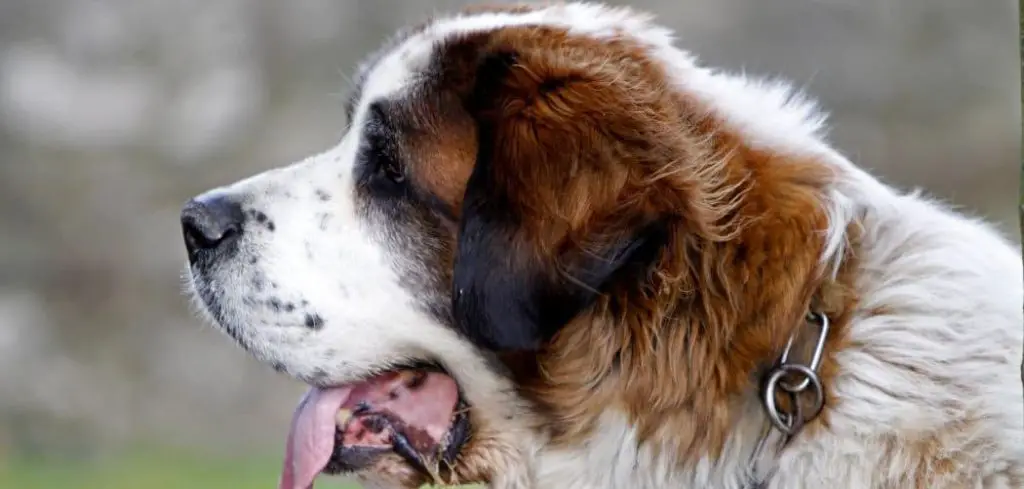Dogs that constantly chew or lick their paws may be experiencing discomfort, pain, or an underlying health issue.
While occasional licking can be normal, persistent chewing is usually a sign that something is wrong and should not be ignored.
We outline the common reasons for constant paw chewing by dogs, what you can do at home, and when to seek veterinary help.
Table of Contents
Dog Constantly Chewing Paws — Why It Happens
Dogs may chew their paws for a variety of reasons, ranging from allergies and skin infections to anxiety and injuries. In some cases, chewing is triggered by external irritants like grass, pollen, or household cleaners.
Other times, underlying medical issues such as parasites, yeast infections, or joint pain may be the culprit. Emotional stress or boredom can also cause dogs to develop repetitive chewing behaviors that become habitual over time.

Dog Constantly Chewing Its Paws: Common Causes
Allergies
Allergies are one of the most common reasons dogs chew their paws. Environmental allergens like pollen, dust mites, or mold can trigger itching, leading dogs to lick or chew their feet for relief.
Food allergies are another frequent cause, and dogs may react to common ingredients such as chicken, beef, or grains.
Over time, excessive chewing can cause redness, swelling, and even open sores between the toes.
Read more: Dog Constantly Licking Me (What it means)
Yeast and Bacterial Infections
Moist environments between a dog’s toes can allow yeast or bacteria to thrive. These infections often cause an unpleasant odor, greasy fur, and irritated skin.
Dogs with yeast infections may chew at their paws constantly because the itchiness is severe. Left untreated, the cycle of infection and chewing can lead to chronic pain and recurring problems.
Parasites
Fleas, mites, or ticks can also drive a dog to chew its paws. Mange mites, for example, burrow into the skin and create intense itching. Flea bites can cause allergic reactions, making the skin inflamed and highly irritating.
If parasites are the cause, you may notice hair loss, scabs, or tiny black specks of flea dirt on your dog’s paws.
Injuries or Foreign Objects
Sometimes dogs chew their paws because of a splinter, thorn, or small cut that causes discomfort. Even a tiny object lodged between the toes can be extremely irritating.
Dogs may instinctively chew to remove it, but this can make the injury worse and lead to infection. Limping or sudden sensitivity in one paw often points to an injury as the cause.
Anxiety and Stress
Just like humans may bite their nails when stressed, dogs can chew their paws as a self-soothing behavior. Separation anxiety, loud noises, or changes in routine can all trigger this response.
Over time, the chewing becomes a habit and may continue even after the initial stressor has passed. These cases require both behavioral and medical support to break the cycle.
Arthritis or Joint Pain
Older dogs or those with arthritis may chew their paws as a way of coping with pain.
Joint inflammation can make walking uncomfortable, and dogs may focus on licking or chewing the affected paw area.
Unlike allergies or infections, this type of chewing is often accompanied by stiffness, limping, or reluctance to exercise.
What to Do If Your Dog Is Constantly Chewing Its Paws
At home, start by carefully examining your dog’s paws for cuts, thorns, swelling, or visible irritants.
Gently clean the area with a mild pet-safe cleanser to remove dirt or allergens. If allergies are suspected, wiping paws after walks can help reduce exposure to pollen or grass.
For mild itchiness, soothing paw balms or veterinarian-recommended shampoos may provide relief.
Ensuring your dog is on a balanced diet with proper omega-3 fatty acids can also support skin health.
If stress or anxiety is contributing to the chewing, providing more exercise, enrichment activities, and comfort can make a difference.
However, persistent or worsening paw chewing should not be managed at home alone.
Veterinary evaluation is essential to address infections, parasites, or underlying health conditions that require medical treatment.
When to Call or Visit Your Vet
Contact your veterinarian if your dog’s paw chewing becomes constant, leads to bleeding, or causes visible wounds.
Dogs with swollen, red, or foul-smelling paws likely have an infection that needs professional care.
If you notice signs of parasites, hair loss, or sudden limping, a vet visit is also necessary. In older dogs, paw chewing combined with stiffness or reluctance to walk may point to arthritis or joint problems that require ongoing management.
Persistent chewing caused by stress or behavioral issues should also be discussed with your vet, as they can recommend training, behavior therapy, or medications to help break the habit.
Read more: Dog Constantly Licking Anus (Causes you should know)
Key Takeaway
Constant paw chewing in dogs is not just a quirky habit—it often signals discomfort, pain, or an underlying health condition.
While some causes may be minor and manageable at home, others require veterinary diagnosis and treatment.
If your dog is persistently chewing its paws, take time to observe symptoms, provide comfort, and seek veterinary care when needed.
Addressing the issue early can prevent complications and keep your dog healthy, comfortable, and happy.
